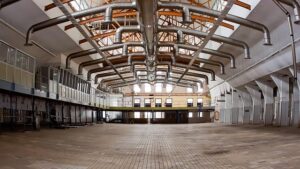Industrial roofing contractors specialize in addressing unique challenges faced by large complexes and factories, focusing on durable, safe warehouse and factory roof systems. They offer comprehensive services, leveraging advanced materials like EPDM, TPO, steel decking, and lightweight concrete for long-lasting protection against harsh weather conditions. Compliance with regulations, safety practices, and regular maintenance, including inspections and proactive care, ensure structural integrity, protect workers, and optimize operational efficiency in these critical facilities.
“In the world of large-scale industrial complexes, a robust and reliable roof is non-negotiable. Understanding the unique challenges these facilities present is key, prompting many to seek out specialized industrial roofing contractors. This article delves into the intricacies of industrial roofing, exploring essential services from expert contractors who navigate complex needs. From materials and safety protocols to longevity tips, discover how modern technologies revolutionize roof construction for manufacturing facilities, ensuring structural integrity and operational efficiency.”
- Understanding Industrial Roofing Challenges
- The Role of a Specialized Contractor
- Key Services Offered by Industrial Roofing Experts
- Materials and Technologies in Modern Industrial Roofs
- Ensuring Safety and Compliance During Installation
- Longevity and Maintenance Tips for Industrial Roofs
Understanding Industrial Roofing Challenges
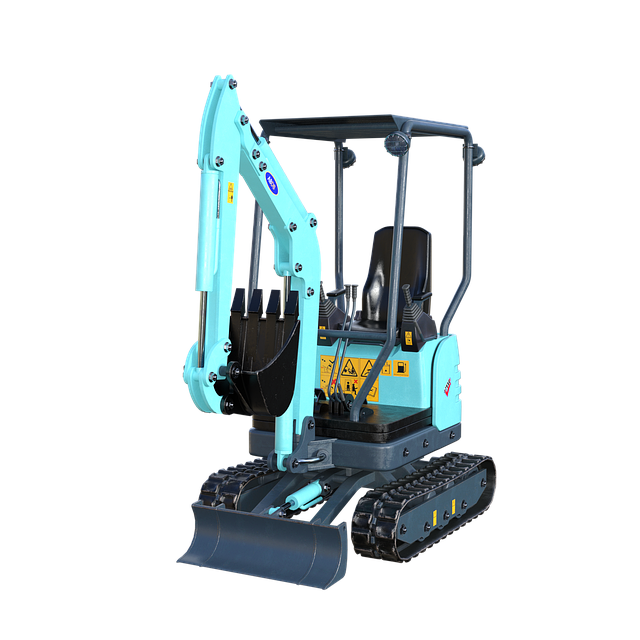
Industrial roofing presents a unique set of challenges due to the demanding nature of these environments. When it comes to large-scale complexes and manufacturing facilities, selecting the right roofing solution is paramount. These structures often house sensitive equipment, require robust protection from harsh weather conditions, and demand long-lasting durability to minimize downtime and maintenance costs.
One prevalent concern in industrial settings is the management of expansive flat roofs, a common feature in warehouses, factories, and large manufacturing plants. Unlike residential or commercial properties, these structures necessitate specialized knowledge and materials for installing and maintaining industrial flat roofing systems. Additionally, with evolving standards and regulations, factory roof systems must be designed to accommodate future upgrades while ensuring optimal performance and safety. Choosing the appropriate warehouse roofing solutions can significantly impact operational efficiency, energy costs, and overall facility management.
The Role of a Specialized Contractor
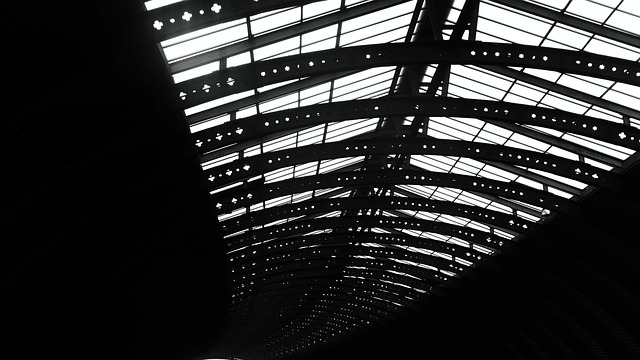
When it comes to large-scale industrial complexes or manufacturing facilities, enlisting the services of a specialized industrial roofing contractor is paramount for several reasons. These contractors are equipped with the expertise and resources needed to handle the unique challenges posed by such structures, ensuring both durability and safety. They understand the intricacies of designing and installing robust warehouse roofing systems that can withstand extreme weather conditions, heavy loads, and constant exposure to harsh environments.
Moreover, these professionals offer a comprehensive suite of services, including repairs, maintenance, and replacement for factory roof systems. An industrial flat roofing expert will employ advanced techniques and materials to create a seamless, leak-proof barrier, protecting the facility’s interior from potential damage. Their expertise in this domain is crucial for maintaining operational efficiency, minimizing downtime, and safeguarding valuable assets within these sprawling industrial landscapes.
Key Services Offered by Industrial Roofing Experts

Industrial roofing contractors specialise in providing comprehensive roofing solutions tailored to meet the unique demands of large-scale industrial complexes and manufacturing facilities. These experts offer a wide range of key services designed to ensure the structural integrity, safety, and operational efficiency of these critical facilities.
One of their primary focuses is on warehouse roofing and factory roof systems. This involves installing and repairing durable, weatherproof materials like metal, membrane, or EPDM (ethylene propylene diene monomer) to withstand harsh environmental conditions. They also specialise in industrial flat roofing, utilising advanced techniques and materials to create leak-resistant, low-slope roofs that are both efficient and cost-effective. These services encompass everything from initial assessments and design to installation, maintenance, and emergency repairs, ensuring these facilities remain operational and secure throughout all seasons.
Materials and Technologies in Modern Industrial Roofs

In modern industrial roofing, a myriad of advanced materials and technologies are employed to cater to the unique demands of large-scale complexes. Industrial roofing contractors often opt for durable and long-lasting solutions, considering the harsh environmental conditions and heavy loads these structures endure. One popular choice is the use of high-performance membranes, such as EPDM (Ethylene Propylene Diene Monomer) or TPO (Thermoplastic Olefin), which offer exceptional resistance to chemicals, UV radiation, and extreme temperatures. These materials are ideal for factory roof systems and warehouse roofing, ensuring a robust and maintenance-free barrier against the elements.
Additionally, modern industrial complexes benefit from innovative structural designs like steel decking and lightweight concrete alternatives. Steel decking enhances structural integrity while reducing weight, making it suitable for various types of roofs, including industrial flat roofing. These advanced materials and techniques not only provide superior protection but also enable faster installation and reduced maintenance costs over time, ensuring the facility’s operational efficiency.
Ensuring Safety and Compliance During Installation
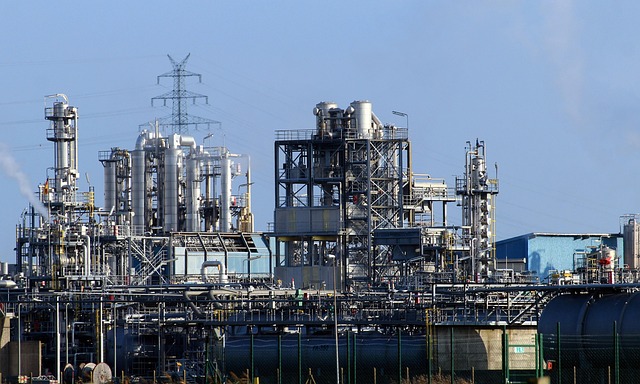
When it comes to installing roofs on large-scale industrial complexes, ensuring safety and compliance is paramount. Industrial roofing contractors must adhere to stringent regulations designed to safeguard workers and the environment. This includes utilizing specialized equipment, such as fall protection systems, to mitigate risks associated with working at heights. Regular inspections and adherence to safety protocols are non-negotiable, especially for warehouse roofing or factory roof systems, where the potential for hazards is high.
Compliance also involves using materials that meet industry standards for durability and safety. For industrial flat roofing, this might mean selecting reinforced membranes capable of withstanding heavy loads and extreme weather conditions. By prioritizing safety and compliance, contractors not only protect their workers but also contribute to the long-term reliability and efficiency of the facility’s roof systems. This is particularly crucial in the manufacturing sector, where uninterrupted operations are vital for business continuity.
Longevity and Maintenance Tips for Industrial Roofs
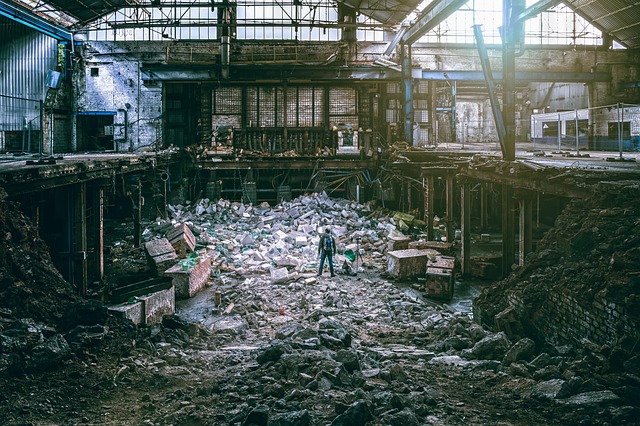
Industrial roofs are designed to withstand the rigors of heavy machinery, constant activity, and often harsh environmental conditions. A well-maintained industrial roofing system can last for decades, but proper upkeep is crucial. Regular inspections by a qualified industrial roofing contractor are essential to identify potential issues early on. These include checking for leaks, damaged or missing shingles or panels, corrosion in metal structures, and signs of wear and tear around vents and chimneys.
Proactive maintenance strategies like cleaning gutters and drains to prevent water damage, sealing seams and joints, and applying protective coatings can significantly extend the lifespan of industrial flat roofing or factory roof systems. Choosing the right materials for warehouse roofing is also vital; durable options like metal, asphalt shingles designed for commercial use, or single-ply membranes offer superior resistance to weathering and UV exposure. Regular care and timely repairs ensure optimal performance, safety, and minimize costly replacements for these critical structural components of industrial facilities.
